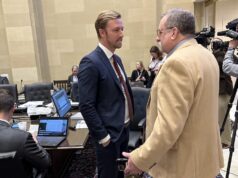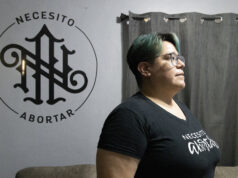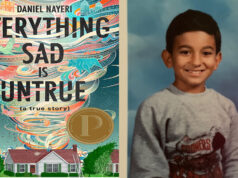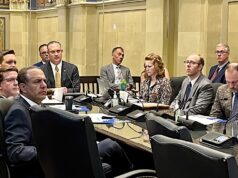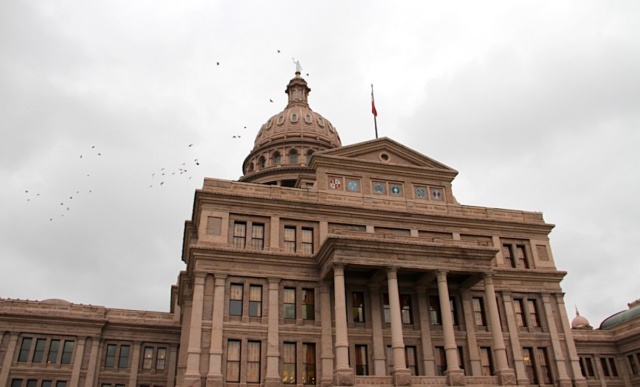
AUSTIN — Desiré Nizigiyimana, a tall man with a broad smile and big, expressive eyes, sits in his office in East Austin, 8,100 miles away from his hometown of Bujumbura, the capital city of Burundi, where he was born in 1972.
Asked what made him come to Austin four years ago, he rolls his eyes and says, “It’s a long story.”
Nizigiyimana studied law and helped defend refugees in Burundi before becoming a judge in the high court. One day, he received a case involving a man who was incarcerated because he tried to begin a new opposition party.
“When I decided to release him, that was the beginning of my trouble,” he remembers.
Nizigiyimana was kidnapped, tortured and left for dead in the forest by agents from the Burundian government.
“They were discussing cutting my head off or leaving me alone,” he said.
Finally, he was able to flee and sought help from the United Nations in Burundi before escaping to neighboring Rwanda in 2009. The United Nations High Commissioner for Refugees (UNHCR) took his case, and he was granted asylum by the U.S.
Now, Nizigiyimana works for Interfaith Action of Central Texas (IACT), a nonprofit that offers refugee services, including ESL classes. His title is refugee program assistant, and he also helps with translation services thanks to his knowledge of five different languages: French, Swahili, Kirundi, Kinyarwanda and English.
Life as a refugee ‘changes who you are’
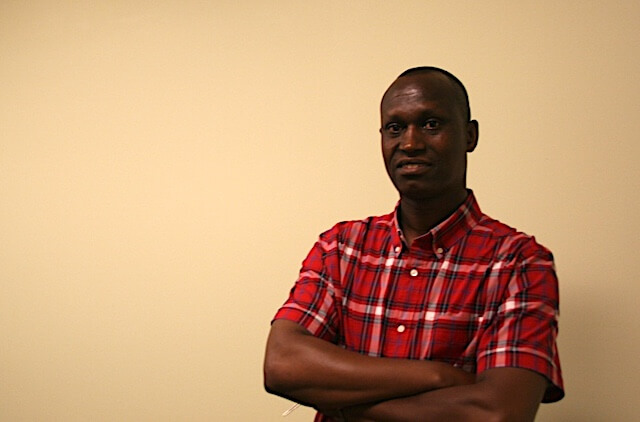
Nizigiyimana knows how hard life is for people without an official safety net in Texas, and he knows that refugees in Texas often have to rely far more on volunteers and nonprofits than the state.
The adjustments are profound.
“People want you to do exactly what Americans are doing. They don’t care about your culture,” he said. “They might teach you to do things that might be forbidden in your culture.”
And the problems never seem to end.
“Also, you can be given very strange jobs. They don’t care about your diploma and prior education,” he said. “I was a lawyer, then became a judge, and was a college teacher. I taught business and commercial law, and when I came here I was sent to make beds in a hotel. It changes your mind and changes who you are.”
When asked if he had a happy life in the United States, Nizigiyimana paused, with a thoughtful reflection on his face and spoke with a flat, calm tone.
“No.”
After a couple of seconds, he elaborated.
“In my ID, it says I’m from Burundi. People will know that I’m not American. People will say, ‘Where are you from?’” he said in an exaggerated, sarcastic tone. “You cannot get integrated. It’s a long process, and it’s frustrating.”
There are times he feels very alone.
“You cannot go back to your country, and here, you are called a refugee. When will this finish? People need to call you by your name without adding that qualification. When I talk to lawyers, sometimes I see some mistakes, and they’ll ask, ‘Who are you?’ I’ll say, ‘I’m a lawyer, just like you.’ They’ll say ‘Wow!’ … Why do they always say, ‘Wow’?”
Still, he is confident and sees the silver lining in working for IACT.
“I was lucky to end up working here. I think if I worked in another place, I would have gone back to my country, but they are good,” he said. “I need peace and these people who understand who I am.”
Gov. Abbott withdraws Texas from federal refugee program
As refugees flee from violence, negligence and segregation, Nizigiyimana noted that they may be surprised to find more of the same in their new host country, especially in the Texas State Legislature.
Following the Paris attacks in November 2015 and a global wave of fear threatening millions of asylum seekers around the world, Gov. Greg Abbott threatened to withdraw Texas from the United States’s federal refugee resettlement program.
In September, his proposal became a reality.
Recent international conflicts, such as the civil war in Syria and increasing financial and political instability in South America, Africa and the Middle East have caused a surge in the number of asylum seekers.
Now, hundreds of people involved in refugee advocacy in Texas appear ready to aid those abandoned by the governor’s policies.
“The large and compassionate refugee service community in Texas will not forsake them — even if our state does,” said Chris Kelle with Refugee Services of Texas.
Today, an increasing number of nonprofits, community centers, volunteers and scholars are racing to make refugees feel at home throughout Texas.
“After the governor’s proposals, some of the resettlement agencies have seen a tremendous increase in the number of volunteers that are stepping up to help provide those services — to make sure those refugee families are getting employment, their kids getting into schools, and they’re feeling safe and welcome,” said Laurie Cook Hefron, a professor at St. Edward’s University who has done extensive research on human trafficking, immigration and refugee resettlement.
Abbott’s proposal will cut state-controlled programs and funding, and the resettlement of refugees will slow to a halt. Beginning Feb. 1, 2017, refugee resettlement efforts in Texas will be controlled regionally and by a group of nonprofits.
“We are hoping it will be a smooth transition,” said Simone Talma Flowers, who now helps run IACT.
However, when refugees get to the United States, they are protected by the constitutional freedom of movement from any state to another, just like any other American. Any efforts to expel refugees currently living in Texas would also be unconstitutional.
“We know refugees will continue coming, and we know that we are committed to making sure that we continue working together so that there are no disruptions or gaps in the services that they need,” Flowers said. “And we’re making sure that the refugees know that they are welcome here, no matter what they hear.”
But Abbott is not alone in his proposal: Two other Republican governors, Sam Brownback of Kansas and Chris Christie of New Jersey, have withdrawn their states from the federal resettlement program. Abbott is trying to go even further.
“I strongly urge the federal government to completely overhaul a broken and flawed refugee program that increasingly risks American lives,” he said in a September statement.
A ‘wrong-hearted decision’
“Our work will continue despite the state’s wrong-hearted decision,” said Kelle from Refugee Services of Texas. “But it will not be easy to reconstruct a service infrastructure for these vulnerable groups that took nearly 40 years to build.”
Historically, Texas has been a refugee-welcoming state. In 2015, Texas received 7,415 people from 40 different countries, more than any other state in the nation.
Despite the heroic efforts from many good-hearted Texans, many refugees still find the American way of life increasingly difficult.
“We have people who don’t know any English, we have people who have had little or no education throughout their entire lives, and also we have some who are doctors (and) lawyers,” Flower said. “But the expectation is that they learn English in three months, and then go find a job. It’s an unrealistic expectation.”
Hefron, the professor from St. Edward’s, sees other things.
“Sometimes, given their background, there may be additional health and mental health services that are needed for them, and generally those are many of the services they receive when they come to Texas,” she said.
Refugees still coming
Abbott’s proposal is merely the latest in a wave of terrorism-based fear and paranoia encouraged by leaders like President-elect Donald Trump and believed by millions of Americans, but such negative sentiments are far from what data and success stories support.
“When refugees come here, they come to be safe, to have a better life, and to create a better future for their children,” Flowers said. “The fear of them being terrorists is something that we don’t see. They’re happy to be safe.”
One thing is clear: Abbott’s decision has not stopped refugees from coming to Texas, and that will not change in the near future. Somehow, some way, refugees will still seek out and find Texas as the new home in which they can contribute to daily economic, social, cultural and political developments.
“The decision (by Abbott), after nearly 40 years of participation, is dangerous, divisive and dehumanizing, and it panders to the most xenophobic tendencies of a small sliver of Americans,” said Kelle. “Refugees are fleeing violence — not participating in fomenting it.”
Despite the fact that politicians may try to perpetuate emotions of persecution for refugees, Nizigiyimana and others believe courageous, open-hearted Texans are there to help, if they can be found.
“You see people talking around you and you need to ask questions, but you are afraid to, because you don’t know how they will react,” Nizigiyimana said. “The distance between people is hard.”










